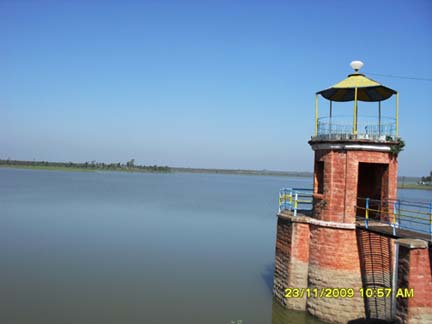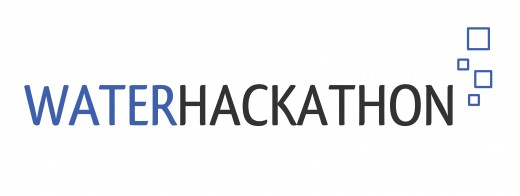Governance
Alternative national water policy - A critique - Economic and Political Weekly
Posted on 30 Oct, 2011 04:04 PMThis article published in the discussion section of the Economic and Political Weekly is a critique of the National Water Policy: An alternative draft for consideration, proposed by Ramaswamy Iyer, published in the Economic and Political Weekly, June 25th 2011.
Fisheries and livelihoods in Tungabhadra basin: Current status and future possibilities – A working paper by Institute for Social and Economic Change
Posted on 30 Oct, 2011 01:02 PMThis study by Institute for Social and Economic Change (ISEC) aims at understanding the livelihood patterns of fishermen within the Tungabhadra sub basin, a tributary of river Krishna located in peninsular India. Lack of integrated approach in development initiatives and water management plans warrants the need for Integrated Water Resource Management to support livelihoods. The study focuses on fisheries as a source of livelihood, current status and institutional support available, people dependant on it, development initiatives and suggestions for improvements.
Deciphering environmental flows - An article in Seminar magazine - Jayanta Bandyopadhyay
Posted on 30 Oct, 2011 10:45 AMAuthor: Jayanta Bandyopadhyay
This article published in the Seminar 626, October 2011 argues that our current state of knowledge of water systems and ecological modelling related to flows of water, which includes projecting a single quantitative figure of water requirements, is inadequate. Such a unilateral prescription of environmental flows or water requirements of aquatic systems as a method for the resolution of water conflicts may actually become the source of many new conflicts.
Sustainable resources management for food security and sustainable livelihoods - Action - A Newsletter of AFPRO
Posted on 30 Oct, 2011 07:46 AMThese technologies include soil and water conservation measures, integrated farming, diversion based irrigation systems, sustainable agriculture, tree-based farming to name a few.
Where and how is the state - Accessing water and the state in Mumbai and Johannesburg - Journal of Asian and African Studies
Posted on 29 Oct, 2011 05:28 PMThis paper published in the Journal of Asian and African Studies examines the argument that the political and institutional contexts of service delivery shape people's access to the state and its resources and also the mediation between citizens and g
Report of the committee on slum statistics/census - Ministry of Housing and Urban Poverty Alleviation
Posted on 29 Oct, 2011 04:12 PMThis report by the Ministry of Housing and Urban Poverty Alleviation, Government of India, is the outcome of the deliberations conducted by the committee on slum statistics/census constituted by the Ministry of Housing and Urban Poverty Alleviation in the context of the realisation that there continues
Private water supply augmentation project for Khandwa town in Madhya Pradesh under UIDSSMT - A case study of the impacts of the project by Manthan Adhyayan Kendra
Posted on 29 Oct, 2011 12:28 PM This report by Manthan Adhyayan Kendra discusses the concerns around the private water supply augmentation project in Khandwa town in Madhya Pradesh under the Urban Infrastructure Development Scheme for Small and Medium Towns (UIDSSMT), a Government of India scheme for infrastructure development in small and medium town.
This report by Manthan Adhyayan Kendra discusses the concerns around the private water supply augmentation project in Khandwa town in Madhya Pradesh under the Urban Infrastructure Development Scheme for Small and Medium Towns (UIDSSMT), a Government of India scheme for infrastructure development in small and medium town.
Khandwa is the first town in Madhya Pradesh to execute a private water project under this scheme, hence the findings of this project would be important for other towns as well which are looking for implementing private water projects under UIDSSMT.
This report basically focuses on the issues related to the new private water supply augmentation project from Chhoti Tawa, a tributary of Narmada River, and a part of the backwaters of Indira Sagar Project on Narmada. It gives a brief picture of the existing water supply system in Khandwa. It also discusses in details the impacts of the new private water supply project and question marks on the project efficacy.The report looks into the alternative systems that could have been operated instead of the current private, long distance and expensive project.
New hope for Indian food security? The System of Rice Intensification – A paper by International Institute for Environment and Development
Posted on 29 Oct, 2011 11:43 AMThis paper from the gatekeeper series of the International Institute for Environment and Development (IIED) describes the potential of an innovative rice cultivation practice-the system of rice intensification (SRI)—for allowing Indian rice farmers to not only enhance rice production and their net incomes, but also to solve the water crisis.
Decentralised treatment and recycling of domestic wastewater - An integrated approach to water management - A pilot project - CPCB (2008)
Posted on 27 Oct, 2011 10:32 AMThis report by the Central Pollution and Control Board (CPCB) describes the various intervention measures chosen to reduce the ecological footprint of the Sangamam housing project at Auroville. These measures include water harvesting, recycling and waste management.






